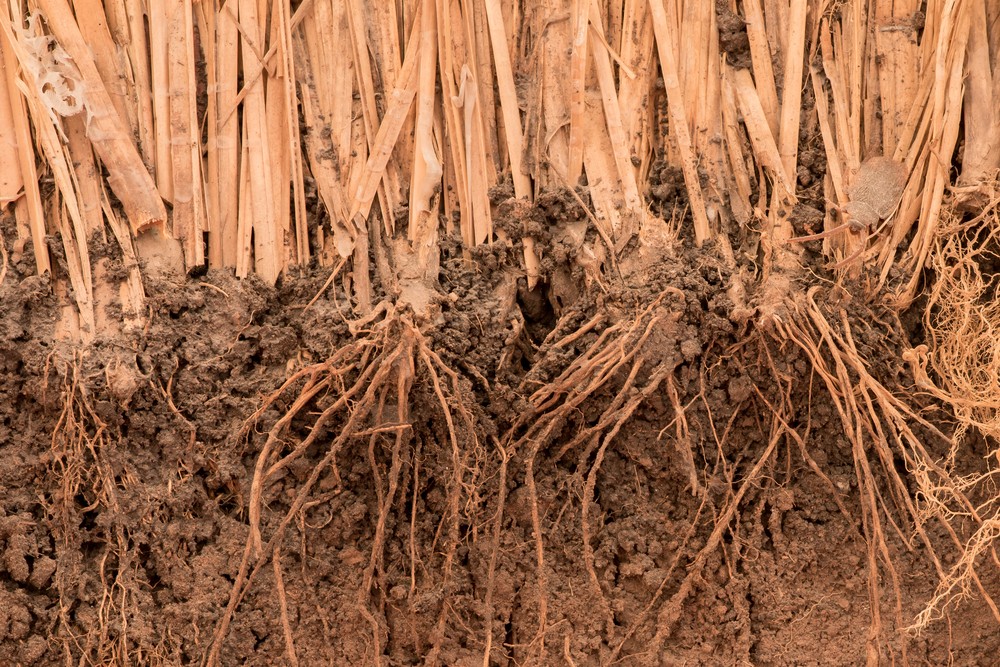Field of Vetiver grass. Photo: Shutterstock
A hundred farmers in Voi are growing Vetiver, a perennial bunch grass that is useful in soil and water preservation, fodder grass for animals’ feed, crop protection and pest repellent and earning alternative income by selling the grass to interested buyers.
Vetiver grass is native to India and it thrives in the tropical regions. It is closely related to sorghum but shares many morphological characteristics with other fragrant grasses like the lemon grass. It has deep and massively thick root system of that binds the soil making it very difficult to be dislodged under high velocity water flows.
RELATED NEWS: Former Police Officer Strikes Gold with Guatemala Grass
Paul Mwadime a farmer in the area says that the grass has helped him end soil erosion in his farm encouraging him to increase its cultivation.
“I started growing the grass in 2001 but before that my farm almost ran bare with the top fertile soil which every rainy season was swept downstream. Growing Vetiver in the lanes across the farm has prevented the soil erosion and I have since increased the area under its cultivation from half an acre to two acres,” said Mwadime.
The benefits experienced from Vetiver has encouraged farmers from the area to form a group that enables them to purchase the grass at a discounted price from Vetiver Network International.
“While at first the group learnt in my demonstration plot, individual farmers have gone on to plant the grass in their respective farms and are earning through the sale of the grass especially in dry spells,” said Mwadime.
RELATED NEWS: Brachiaria grass rescues farmer’s cow from drought
Vetiver which is propagated from plant parts including shoots, crown and the roots grows in a wide range of soil varieties. It grows up to five ft high and forms clumps; the stems are tall and the leaves are long, thin and rather rigid. Vetiver roots grow downward to approximately 7ft – 13ft in depth and does not form stolon nor rhizomes hence not invasive and weedy.
In Soil and water conservation, Vetiver forms narrow, dense hedges when planted along the contours of sloping land slowing down runoff and helping the water to soak into the soil rather than to wash away.
Fodder: Regular harvesting of young leaves of vetiver which are more palatable provides feed for animals when there is scarcity since they have a nutritive value similar to that of Napier grass. With improved management, vetiver would make an adequate dry season fodder when combined with high protein forage.
Crop protection and pest repellent: Vetiver attracts stem borer which lays their eggs there but the larvae cannot move on the leaves hence falls down and die. Its extracts can also be used to repel termites.
His efforts in promoting Vetiver technology saw Mwadime awarded a certificate of technical excellence by Vetiver Network International in 2011.
RELATED NEWS: Farmers embrace Rhodes grass to fight climate change
The grass sells at six Kenya shillings per piece especially due to its rise in demand among farmers. In May last year, Mwadime sold the grass to an organization in Kajiado County worth Sh150, 000.

Roots of Vetiver grass in the ground. Photo: Shutterstock
To buy contact Plus-Kenya 0725 30 96 64.